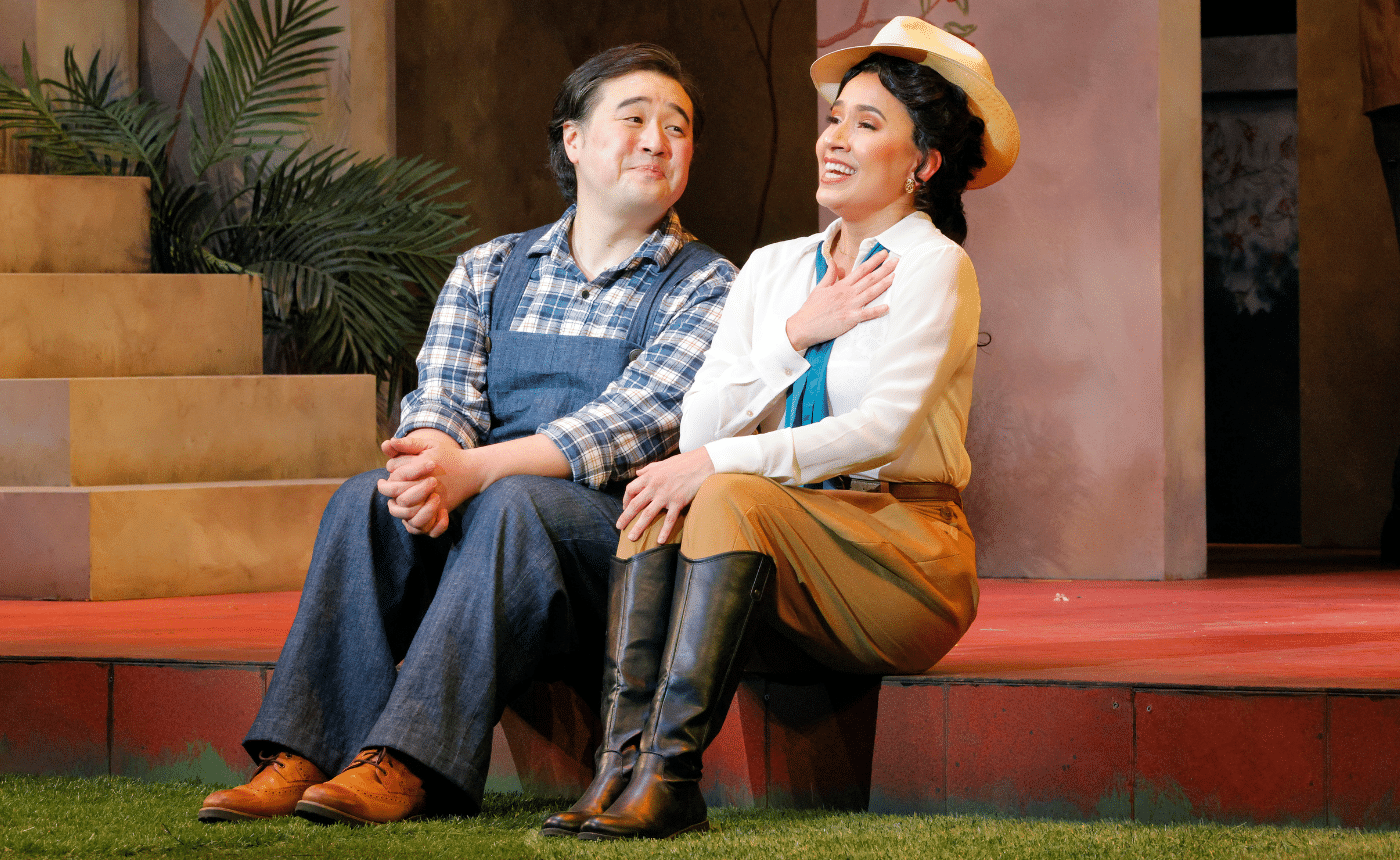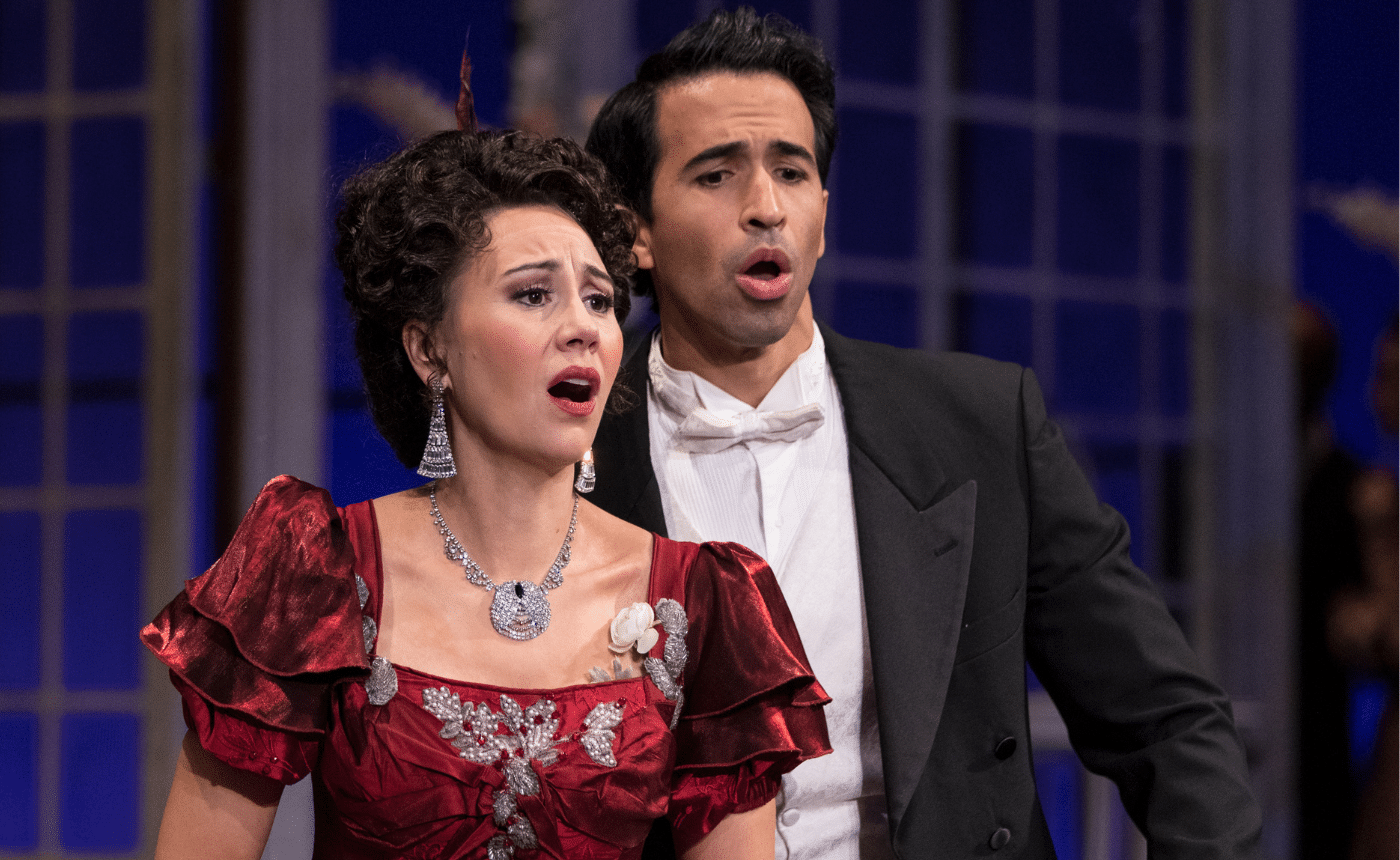Verdi and the Bard
by Paula Fowler
In 1846, the manager of the Teatro della Pergola in Florence commissioned 33-year-old Giuseppe Verdi to create an opera on a topic of his own choice. Since the triumph of his 3rd opera, Nabucco, three years previously, Verdi had become a composer over whom opera companies vied, and they had kept him busy. The opera for Florence, set to premiere in March 1847, would be Verdi’s 10th composition for the opera stage.
Verdi had several possible subjects in mind for this commission, but soon dedicated himself to Macbeth because of the availability for the project of Felice Varesi, a baritone of remarkable vocal, dramatic and intellectual abilities. In Verdi’s mind, the role of Macbeth required a baritone; had a stellar tenor been available instead, he would have pursued a different subject altogether.
The choice of Macbeth was the first manifestation on the stage of Verdi’s fascination with Renaissance British playwright William Shakespeare. Verdi didn’t speak English; his passion for the Bard of Avon developed from reading Italian prose translations of the plays. He wrote, “He is one of my favorite poets. I have had him in my hands from my earliest youth, and I read and reread him continually.” Verdi’s devotion to Shakespeare is evident in his choice of Shakespearean plots for several of his operas. Macbeth is the first he selected for an operatic setting. Later he worked on a King Lear, but never completed the project. For his final two works (out of a total of 25 operas), and after a decade of not composing at all, he emerged with Otello and Falstaff, both now regarded as operatic masterpieces.
Knowing of his affection for Shakespeare, we shouldn’t be surprised that Verdi always emphasized the importance of drama in his operas. To Varesi he wrote, “I shall never stop telling you to study the words and the dramatic situation; then the music will come right of its own accord.” He was tyrannical about getting the story-telling just right. According to the memoirs of the first Lady Macbeth, a singer known as La Barbieri-Nini, Verdi made her study the sleepwalking scene for three months, and made her rehearse a major duet scene with the baritone more than 150 times, including one final time on dress rehearsal night, in the lobby, while the overture was playing!
For both Macbeth and his lady, Verdi insisted that dramatic impact was even more important than beauty of sound. He told Varesi that his part should be practically “declaimed,” and in a letter about the casting of a revival of Macbeth, Verdi wrote, “I would rather that Lady didn’t sing at all….I would rather that Lady’s voice were rough, hollow, stifled….something devilish.”
In preparation for composing his Macbeth, Verdi himself wrote a careful synopsis of the plot. He condensed Shakespeare’s Acts 1 and 2 into the opera’s first act, and dedicated one act each to the remaining three acts of the play. What we get in the opera is the essence of Shakespeare’s Macbeth: a good man—goaded on by his own ambition, witches’ prophecies, and his wife—commits an evil act. That is, he kills King Duncan, whom, up until then, he has served loyally and nobly, in order to become king himself. Thus begins the eddy that escalates into a whirlpool of wicked activity from which Macbeth cannot escape, no matter how miserable it makes him. He has murderers attack his friend Banquo, whose progeny are predicted by the same witches to become kings. When Macduff seems to question him, Macbeth has the young man’s family murdered. Under Macbeth’s rule, the entire country decays. Still insecure, Macbeth returns to the witches and receives three more predictions which convince him he lives a charmed life. Meanwhile, buried guilt surfaces in Macbeth’s wife: sleepwalking, she yearns to remove the blood of King Duncan from her hands. When she dies, Macbeth can hardly spare a moment to mourn her. He is finally vanquished at the hands of Macduff, and Duncan’s son Malcolm rightfully takes the helm of Scotland, determined to steer the ship of state to calmer, less muddied waters.
Verdi and his librettists managed to get all of this basic story into their opera, an amazing feat given that it generally takes at least three times as long to sing as to say anything. Of course minor characters were eliminated and speeches were trimmed. Macbeth’s ten lines of “tomorrow and tomorrow and tomorrow,” for example, which are given in response to the death of his wife, become just two: “Life’s…a tale | told by an idiot, full of sound and fury, | signifying nothing.” Furthermore, not all of Macbeth’s soliloquies, through which we chart the decline of a good man in the play, survive in the opera. We get much of his Act 2 dagger speech in aria form (the soliloquy’s natural equivalent in opera), and another aria in Act 4, but Verdi’s Macbeth has less solo time on stage. He resolves much more quickly to take his murderous path than does his counterpart in Shakespeare.
Macbeth’s role is smaller in the opera, but Lady Macbeth receives a much larger share than in Shakespeare’s play, where she performs her function of pushing her husband to regicide and then gradually fades from her husband’s attention (and ours) until her “out damn spot” sleepwalking scene. In the opera, Lady Macbeth is involved in more of the murders and many more of the scenes: she has three aria scenes, and two central duets with her husband, as well as scenes with the chorus.
It is possible, of course, that Verdi merely conceded to operatic tradition for divas when he created a larger role for the leading lady. He was a composer who both did and did not bow to such conventions. It is easy to find typical music structures in some of Macbeth’s arias, and act-ending choral finales in which every character turns and sings to the audience. But Macbeth is also an opera without a central love story (gasp), and one in which the title character has no entrance aria, only a duet with the other low-voiced male playing Banquo.
Also atypical of 19th-century opera (and Shakespearean drama, of course) is Verdi’s extensive and dramatic use of the chorus. In fact, Verdi regarded his witches’ chorus as a third central character. He took Shakespeare’s three witches and made them three covens of witches. About them he wrote, “…the main roles of this opera are, and can only be, three: Macbeth, Lady Macbeth and the chorus of witches. The witches dominate the drama; everything stems from them—rude and gossipy in Act I, exalted and prophetic in Act III. They make up a real character, and one of the greatest importance.”
As well as populating the witches’ scenes, Verdi created a full chorus of murderers (in contrast to Shakespeare’s two men) who bumble the killing of Banquo, allowing the son to escape. In addition, Verdi accomplished the effect of several small scenes from the play when he created the Act 4 chorus “Patria oppressa.” Macbeth has so abused his power, Scotland is in ruins and patriots fleeing the corrupt state pause for a mournful hymn to their betrayed motherland. Verdi thus communicates the socially-destructive result of Macbeth’s vile acts through this element unique to music theatre: a group of fifty people singing in moving harmony.
In the end, each of us will decide whether Verdi’s musical version of the tale of Macbeth, 11th-century Scottish tyrant, effectively communicates the tragedy Shakespeare crafted. Scholars suggest that Shakespeare’s Macbeth succeeds because its protagonist captures our compassion and imagination: he is a good man who makes a bad choice and then finds he cannot escape what he has become. We pity what he’s done to himself; we fear the possibility that we could ever be like him. Investigate that question as you enjoy Utah Opera’s production of Verdi’s Macbeth: what captures your imagination and compassion, once Verdi’s music and interpretation are added to Shakespeare’s tragedy?




